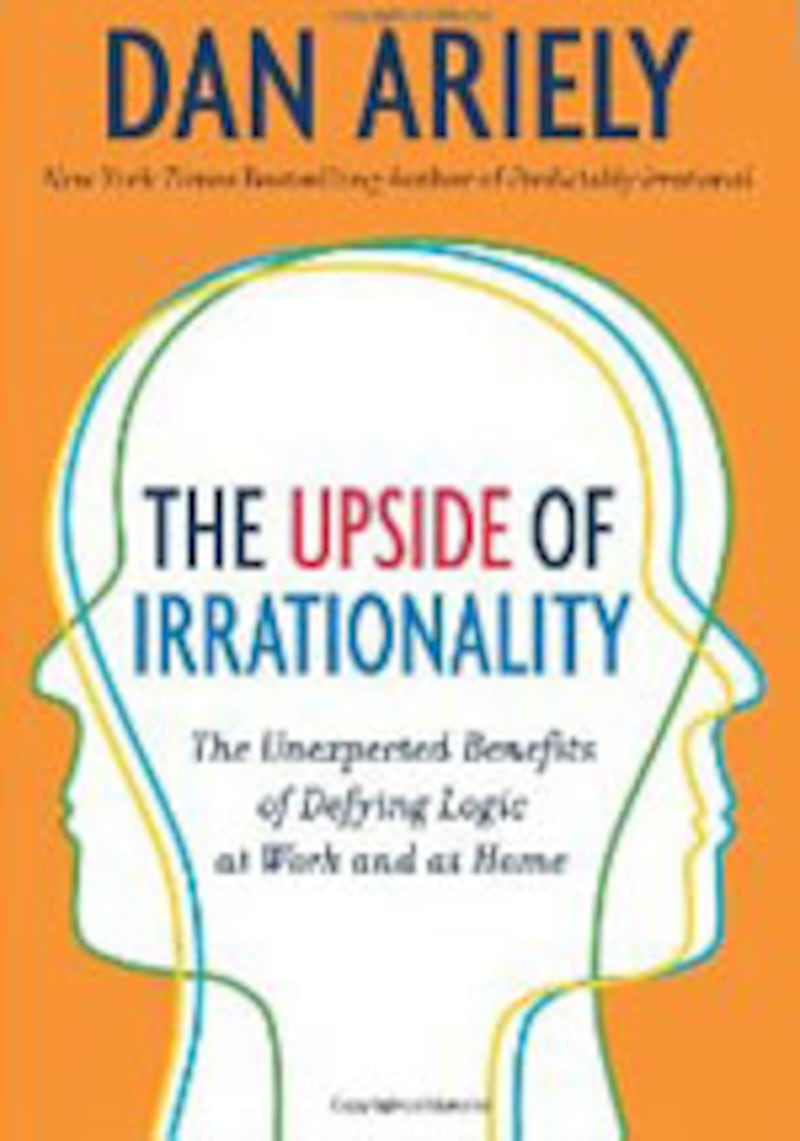
Imagine that your favorite sports team has just won the championship. That night, you have dinner with your mother-in-law, and your spirits are so high that you decide, on a whim, to buy her a bouquet of flowers. A month passes, and it’s time for another dinner with your wife’s mother. You recall your earlier touch of in-law gallantry, and bring her flowers once again, recycling the gesture and initiating what now becomes, unintentionally, a monthly ritual. An entirely unrelated and fleeting emotion has somehow crystallized into a habit that will stretch far into the future. While in this scenario the habit is positive, for negative emotions, these effortless slides, or “emotional cascades,” can have scary implications, suggesting how important it is not to let bad moods get the better of us. Sleep on it, indeed.
It means that people should spread out their self-indulgent purchases rather than splurging, extending the overall joy by allowing adaptation to settle us back to our equilibrium each time.
Dan Ariely’s wonderfully readable new book, The Upside of Irrationality, explores this and other fascinating examples of the less-than-rational ways in which we actually make decisions. Ariely, a professor of psychology and behavioral economics at Duke, delved into the negative effects of biases in decision making in his bestselling book, Predictably Irrational. He continues that effort here, emphasizing that when it comes to choosing, “irrational” doesn’t have to be a dirty word. If we can understand why we make poor decisions, he argues, we can better plan our own happiness, and in the long term, “design the world around us in a way that takes advantage of our incredible abilities while overcoming some of our limitations.”

The result is a lively tour of the human psyche. Whereas people tend to underperform on tasks if they’re being watched, we learn, roaches actually exhibit the same behavior, botching tasks when there is a roach spectator, suggesting the primordial roots of ordinary stage fright. Ariely shows readers how large financial incentives may actually diminish performance, and how and why people value their own pet ideas disproportionately over others’. (Tellingly, even having to unscramble a 10-word sentence led people to value the idea it expressed as highly as if it were their own, implying how linked cognitive effort and evaluation often are.) He explores how we derive meaning in the workplace and the intricacies of trust and revenge, empathy and love, and even online dating.
Pushing back against one of the central ideas of neoclassical economics, that people “will always choose to maximize their reward while minimizing their effort,” Ariely draws our attention to a fascinating case study. In the 1940s, when ready-made baking mixes were introduced, marketers were puzzled as to why mixes for biscuits sold well but cake mixes didn’t. A psychologist, Ernest Dichter, speculated that people wanted to feel that they’d made the cake themselves. If consumers had to add fresh eggs, he guessed, it might simulate just enough of that pride of creation. Sure enough, when dried eggs were removed from the mix, sales skyrocketed. Looking for the easiest path too often, Ariely points out, can deprive us of the deeper sense of pleasure associated with overcoming even small challenges.
Ariely’s chapter on adaptation may be his most arresting. Just as people’s eyes adapt to light, our miseries and ecstasies adapt, too. One problem with this “emotional leveling out—when initial positive and negative perceptions fade” is that “we do a relatively poor job anticipating either the extent or the speed” of the adaptation. Human beings cannot stay too high or too low for that long, and we adjust to new (pleasurable or painful) stimuli more quickly than we expect. It means that people should spread out their self-indulgent purchases rather than splurging, extending the overall joy by allowing adaptation to settle us back to our equilibrium each time. As Ariely playfully explains, it also implies that hot-tubbers should take frequent breaks. By re-encountering the everyday air, we’ll savor the renewed plunge.
The Upside of Irrationality is also about Ariely’s gripping personal story. As a teenager, a magnesium flare exploded and left 70 percent of his body covered in third-degree burns. As he details, his ordeals in recovering played an important role in his thinking into how to turn cognitive biases to our advantage. While not all of the book’s themes are wholly original—he tells us that attractive people prefer to date other attractive people, and that human beings are vengeful—many are, and the journey is brisk and rewarding. I’d be tempted to call the book a beach read for its charm and approachability if it were not filled with such genuinely profound and valuable insights. If you do take it to the beach, of course, go swimming in between chapters. Perhaps you’ll forget how good it is, and enjoy settling back into it even more.
Plus: Check out Book Beast, for more news on hot titles and authors and excerpts from the latest books.
Jamie Holmes is a research associate at the New America Foundation.





